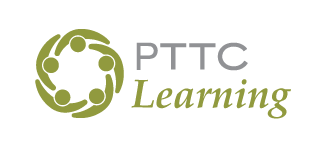Telehealth Tuesday #32 – August 9, 2016 – Podcast – Part I
Substance Use Disorders Treatment and Recovery Support Services in Rural and Remote Areas of the United States: A Three Part Series on the State of the Art
There is not one model for the delivery of quality and effective substance use disorders treatment and recovery support services in rural areas. However, there are themes emerging from the scientific literature as well as from rural treatment providers implementing new services. These themes/strategies include: use of technology and web-based services; offering recovery support services by telephone or web-based portal systems without initial substance abuse treatment services; and providing flexible service delivery, integrated care, and Project ECHO-like models. Most importantly, a successful substance abuse treatment model for rural areas does not include just one intervention, but rather a combination of the interventions that fit the community and the patient population. Join the NFAR ATTC in this podcast series that includes: exploring rural/remote issues regarding SUDs; highlighting the use of technology in recovery support services both informal and formal strategies; and an update on technology-based interventions for individuals with SUDs or at risk for these conditions.
Presenter: Nancy A. Roget, MS, MFT, LADC | PI/Project Director NFAR ATTC
Telehealth Tuesday #33 – September 13, 2016 – Part 2
Recovery Support Technologies: One Answer for Rural/Frontier Areas
Recovery support services are designed to help individuals with substance use disorders enter into and navigate systems of care, stay engaged in the recovery process, and live full lives in their communities. Technology offers one more avenue by which behavioral health professionals can support patients’ recovery, thereby increasing recovery participation and decreasing the likelihood of relapse. This presentation focuses on how the reach of recovery support services can be extended through the use of technologies (e.g., the web, social media, smartphone apps, and cell phone), which is especially important for individuals residing in rural/frontier areas with limited access to services. Thus, expanding access to recovery support services through the use of technologies can help individuals achieve positive health outcomes.
Presenter: Nancy A. Roget, MS, MFT, LADC | PI/Project Director NFAR ATTC
Telehealth Tuesday #34 – October 4, 2016 – Podcast – Part 3
Technology-based Interventions: Extending the Reach of Organizations and Practitioners
The use of online and mobile technologies is pervasive across age, race/ethnicity, and geography. More and more, consumers are relying on Internet- and smartphone-based tools to seek and track health information. Even if practitioners struggle with technologies or doubt the utility of technology-based interventions to provide quality care, it is important they understand the ability of technology to reach large numbers of people and that using technology to provide health services offers the possibility of better care, reduced stigma, and broader reach. There are evidence-based practices that have demonstrated positive outcomes in randomized control studies, as well as numerous efficacy studies on providing prevention, intervention, treatment, and recovery services for individuals with behavioral health problems and those at risk for HIV/AIDs, Hepatitis A, B, and C, and STDs. This podcast is designed to introduce participants to technology-based interventions (Interactive Voice Response; Videoconferencing, Apps, and Texting) that have been tested with individuals with behavioral health disorders and to increase awareness of factors that impact adoption by practitioners and organizations. Finally, the podcast provides two suggestions for practitioners about no costs technology-based interventions that can help practitioners and patients.
Presenter: Nancy A. Roget, MS, MFT, LADC | PI/Project Director NFAR ATTC
